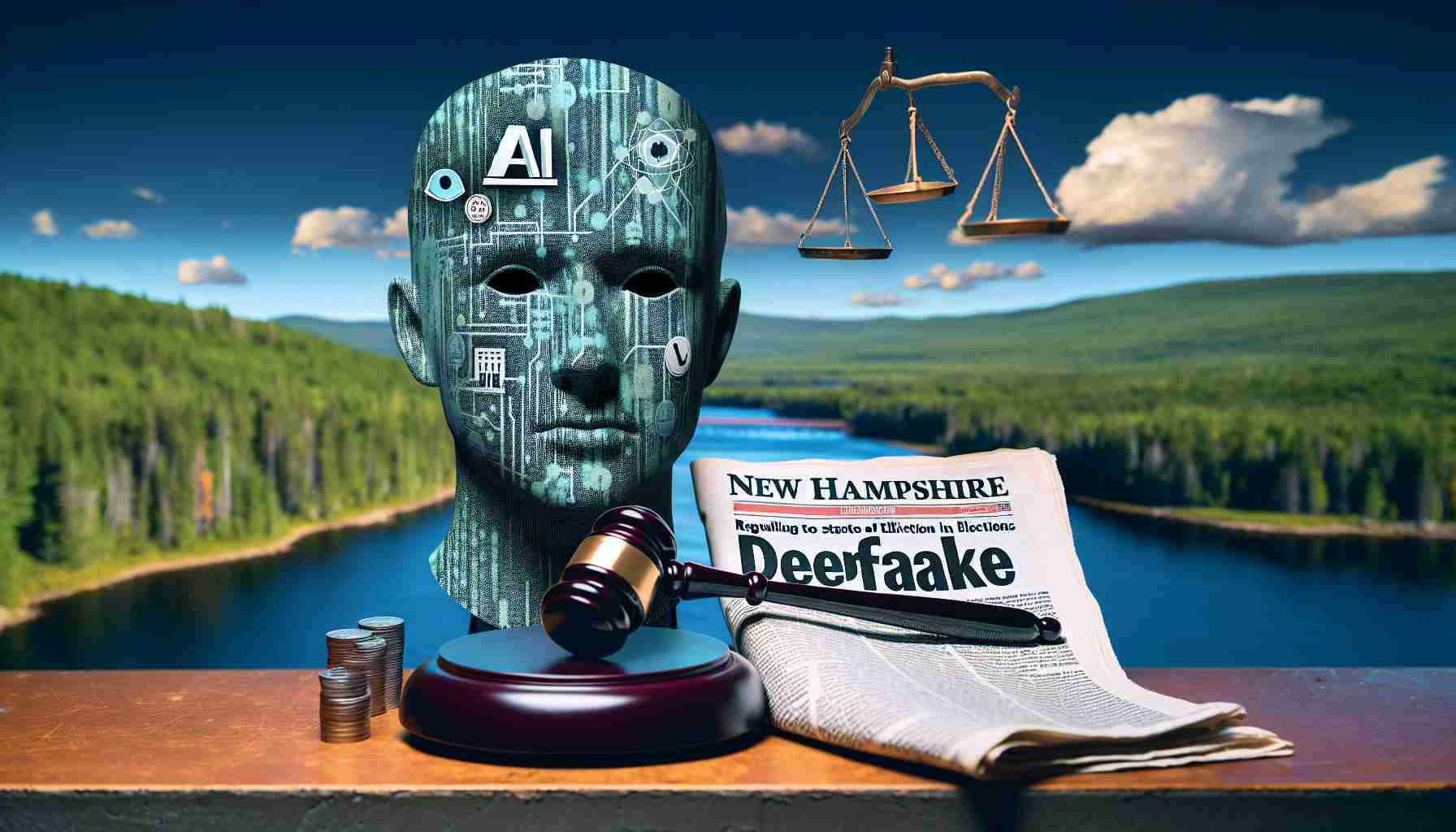The New Hampshire state House has recently passed a bill that seeks to regulate the use of deceptive artificial intelligence (AI) in political advertisements. The bill, which received unanimous approval, mandates that any ad utilizing AI technology must disclose its use to the public. This move reflects a broader trend across states to implement regulations that protect election integrity in the face of emerging AI technologies.
The catalyst for this bill was a series of robocalls received by New Hampshire voters ahead of the state’s primary elections. These calls featured an AI-generated voice imitating President Joe Biden, prompting outrage and concerns about the potential dangers of AI in politics. While it was later revealed that a Democratic operative was responsible for the fake robocalls, his actions brought attention to the urgent need for safeguards against AI-driven disinformation in election campaigns.
Under the new legislation, any political ad using deceptive AI will be required to disclose this fact within 90 days of an election. The disclosures will explicitly state that the ad’s content, whether image, video, or audio, has been manipulated or generated using AI technology and does not depict authentic speech or conduct. However, the bill does include exemptions for satire and parody, allowing for artistic expression and political humor.
New Hampshire joins a growing number of states that are taking proactive measures to address AI-related concerns in election content. According to a recent analysis by Voting Rights Lab, over 100 bills in 39 state legislatures contain provisions aimed at regulating the potential for AI to produce election disinformation. This reflects the recognition of the need to preserve the integrity and fairness of democratic processes in the digital age.
The incident in New Hampshire also reignited calls for federal action in response to AI-driven election disinformation. Advocacy groups, such as Public Citizen, have urged the Federal Election Commission (FEC) to update its rules to address the fraudulent misrepresentation of candidates through deceptive AI. In August, the FEC responded to this pressure by unanimously opening a public comment period to consider updating the relevant rule. However, the FEC has yet to announce further actions in this regard.
As AI continues to evolve and influence various aspects of society, it becomes essential to establish clear guidelines and regulations to protect the integrity of democratic processes. The introduction of this bill in New Hampshire represents a crucial step forward in this endeavor. By mandating disclosure and accountability, the state is sending a message that it is committed to maintaining a fair and transparent electoral system in the face of emerging technologies.
FAQ:
Q: What prompted New Hampshire to pass the AI election regulations bill?
A: The bill was passed in response to a series of robocalls that featured an AI-generated voice imitating President Joe Biden during the state’s primary elections.
Q: What does the bill require of political advertisements that use deceptive AI?
A: The bill mandates that these ads must disclose within 90 days of an election that their content has been manipulated or generated using AI technology and does not depict authentic speech or conduct.
Q: Are there any exceptions to the disclosure requirement?
A: Yes, the bill includes exemptions for satire and parody, allowing for artistic expression and political humor.
Q: Is New Hampshire the only state implementing AI regulations for election content?
A: No, New Hampshire is part of a larger trend with many states introducing bills aimed at addressing AI-related concerns in election campaigns.
Sources:
– Example News
– Another Example
The AI industry is experiencing rapid growth and innovation. Artificial intelligence technology has the potential to revolutionize various industries, including politics and elections. However, the use of deceptive AI in political advertisements has raised concerns about the potential manipulation of voters and the integrity of democratic processes.
According to market forecasts, the global AI market is projected to reach a value of $190.61 billion by 2025, exhibiting a compound annual growth rate (CAGR) of 36.62% from 2019 to 2025. The growth of the AI industry is driven by the increasing adoption of AI technologies across various sectors, including healthcare, finance, retail, and politics.
The need for regulations in the AI industry, particularly in relation to political advertisements, has become a pressing issue. The incident in New Hampshire, where AI-generated robocalls imitated President Joe Biden’s voice, highlighted the potential dangers of AI-driven disinformation in election campaigns. This prompted the state’s House to pass a bill that mandates disclosure of deceptive AI in political ads.
New Hampshire is not alone in addressing AI-related concerns in election content. According to an analysis by the Voting Rights Lab, over 100 bills in 39 state legislatures contain provisions aimed at regulating the use of AI in elections. These regulations aim to protect the integrity and fairness of democratic processes in the face of emerging technologies.
Advocacy groups, such as Public Citizen, have also called for federal action to address AI-driven election disinformation. The Federal Election Commission (FEC) has responded by opening a public comment period to consider updating its rules regarding the fraudulent misrepresentation of candidates through deceptive AI. However, further actions by the FEC are yet to be announced.
Establishing clear guidelines and regulations is crucial as AI continues to evolve and influence society. The introduction of the bill in New Hampshire signifies a significant step forward in protecting election integrity. By mandating disclosure and accountability, the state is demonstrating its commitment to maintaining a fair and transparent electoral system.
For more information on the topic, you can refer to the following sources:
– Example News
– Another Example

